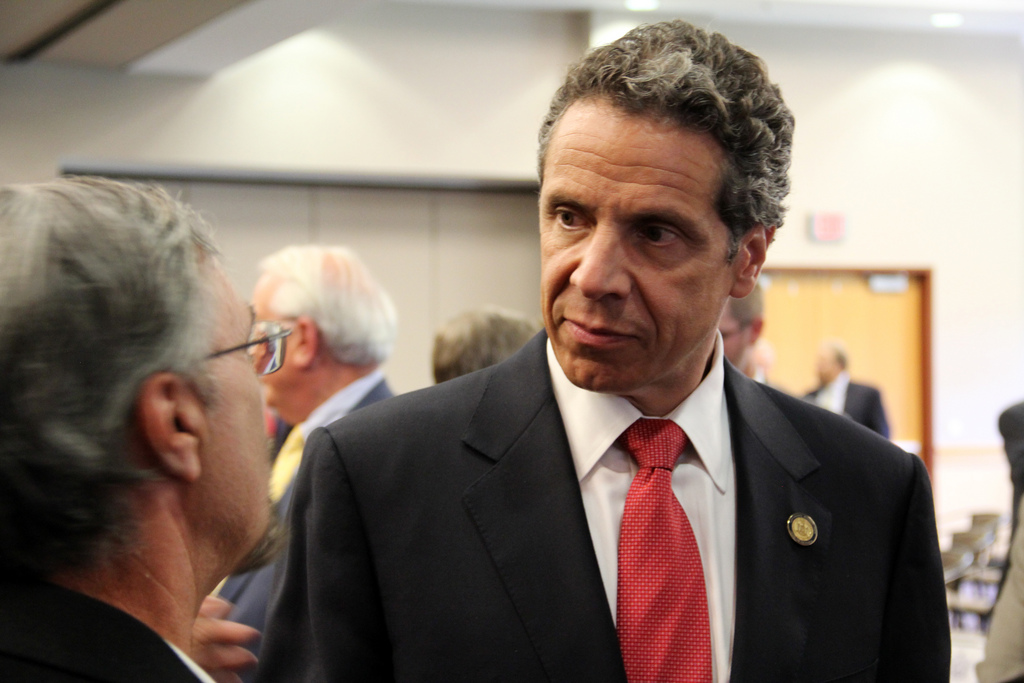Since the Common Core’s creation in 2009, forty-five states and the District of Columbia have adopted the Common Core as a set of educational standards to teach in schools. Despite being recommended by the federal government, these standards are increasingly facing scrutiny and disapproval from the American public and politicians across the aisle. Now that the midterm election cycle has come to a close and the presidential cycle has in many senses just begun, candidates have seized on growing public disapproval of the standards to garner votes and support. The issue is unique in the fact that Democrats have joined Republican candidates in bashing the Core and completely opposing the standards.
The Common Core was first developed during Janet Napolitano’s tenure as Governor of Arizona and chair of the National Governor’s Association as an initiative aimed at improving math and science education in public schools. Eventually, a task force composed of teachers, school administrators, state representatives, parents and experts created the building blocks for the Common Core State Standards. The standards currently focus on English and math but could soon include science. Linking topics across grades, it aims to encourage greater concentration on fewer topics and an emphasis on understanding complex texts. The creation of a unifying, nation-wide curriculum was meant to help students do better on exams and consequently boost school performance grades.
Now, as more states have adopted the standards and the Obama administration has shown more support for the Common Core, it has become an interestingly complex political issue, as both Democrats and Republicans seem to be distancing themselves from it despite demonstrable success in some states.
In Tennessee, adoption of the Common Core has led to vastly improved academic performance. Yet, despite the connection between higher standards and higher performance, both Republican Governor Bill Haslam and US Secretary of Education Arne Duncan are quick to praise the performance but reluctant to credit the Common Core for the improvement. Haslam credits public “misconceptions” about the standards as the reason for their reluctance to use the term, which is reasonable given current public opinion.
A recent Gallup poll of public school parents found that the public is divided over the Common Core with 33 percent approving and 35 percent disapproving. Public schoolteachers, an especially important demographic, are also split on the issue, with a very slight increase in disapproval as of late. However, within the GOP, views are changing rapidly. Republican parents overwhelmingly disapprove of the standards, with 58 percent viewing them negatively, a drastic 16-point increase in disapproval since April. In contrast, the views of Democratic parents have remained largely unchanged since spring. The growing disapproval, especially from Republicans, seems to be directly correlated to increased awareness, as the media has only recently begun covering the Core.Jumping on the bandwagon of disapproval, numerous GOP candidates have come out against the Core recently with the hope of bolstering support for their current or potential campaigns. Louisiana’s Democratic Senator Mary Landrieu has been attacked endlessly about her support for the Common Core by her Republican opponents. While she defends it as a state sponsored initiative, Louisiana Governor Bobby Jindal and other opponents have painted the Common Core as one of Obama’s signature policies forcing big government on local and state institutions, similar to the Affordable Care Act. Similarly, Republican Senator David Vitter of Louisiana has also begun to back away from support of the Common Core, perhaps in the hopes to bolster his potential gubernatorial campaign in 2015. Although he maintains some support for the standards, he is criticizing the Eureka Math aspect of the Core, denouncing it as too difficult and complicated for schools to teach and for students to understand. Still, his moderate support for the Common Core is increasingly being criticized from the right, with opponents like Louisiana state Rep. Brett Geymann claiming that fixing Eureka Math will only cure “one of the symptoms, while not addressing the disease.”
While it makes perfect sense for Republicans to use the unpopular Common Core to garner votes and support, it seems odd that Democratic current and potential candidates are backing away from the standards too, especially since Democratic voters do not overwhelmingly disapprove of the Core.

New York Governor Andrew Cuomo is a prime example of this. Although he was consistently ahead in the polls and won his governor’s race handily, he has recently backtracked on his once strong support following his opponent’s attacks on his support. Cuomo’s shift in opinion is drastic, even claiming he had “nothing to do with the Common Core.” A few months ago, he was defending the change that came with implementation of the Core, citing that change can be hard, “even when it’s right.”
Supporters of the Common Core are now facing criticism from the left as well as the right. Barbara Byrd-Bennett, head of Chicago public schools, recently came out against standardized testing integral to the Common Core, even though state officials claim that it is simply impossible to keep implementing the Common Core and do away with the standardized testing that it requires. Even the liberal Brookings Institution is disillusioned with the Core, claiming that national standards will not fix gaps in performance between states.
It seems as though Republicans have been able to seize upon potentially damaging and powerful rhetoric aimed at furthering the notion that Democrats, specifically President Obama, are further asserting federal influence on everyday life and decreasing any level of autonomy once held by state and local governments. Conservative political commentators, like Glenn Beck, are even asserting that the Common Core really just amounts to liberal indoctrination, a theme routinely used against the President’s agenda and a potentially powerful one.
Democrats, like Cuomo, are wary of Republicans making the Common Core an issue for them, and are seeking to distance themselves from the standards to avoid this. Prior to the Common Core, public opinion unanimously agreed that American public education was in need of an overhaul. But the overhaul might not be even seriously attempted if conservatives gain traction on this issue and paint it as another one of Obama’s intrusions into state or local affairs. Cuomo will not be alone in backing away from his controversial support, and the Core could eventually be abandoned. If Democrats want to preserve the Core and let it run its course in order to examine its results, they must come up with a strategy to defend and support it, rather than just give up.
